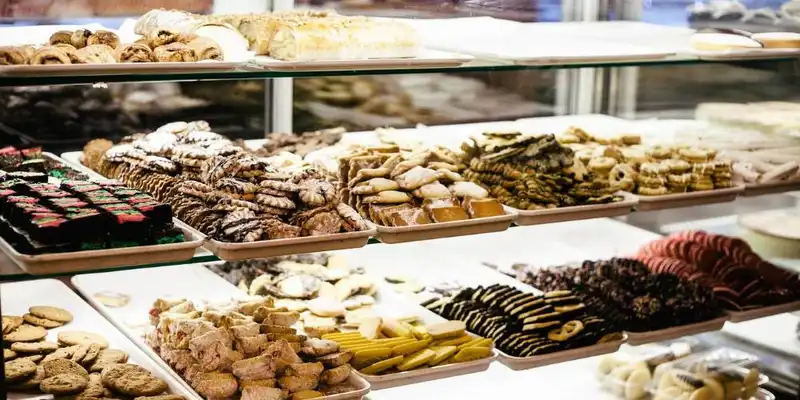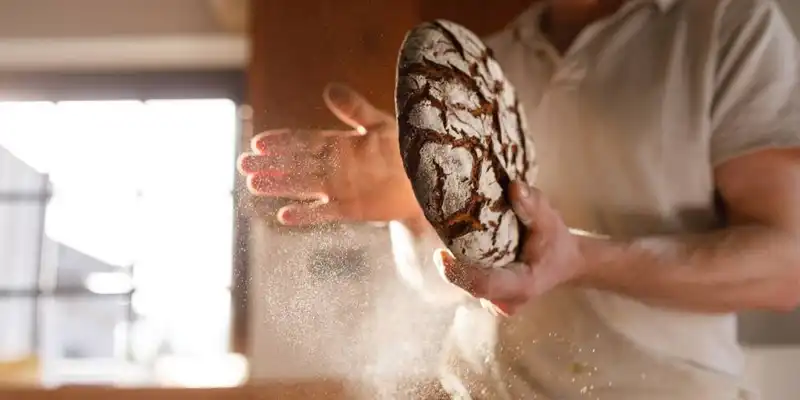Food Safety in Your Bakery- Is Food Safer as a Baker?
Bakery Food Safety vs. Restaurant Food Safety
Bakeries and restaurants are both establishments in the food industry and are required to adhere to all food safety and food hygiene legislation in order to maintain compliance. Failure to do so can lead to huge fines or even business closures. Since you are the one responsible for maintaining these food safety standards it is incumbent on you to be up to date with the latest food safety legislation and the ways that can help you implement proper food safety in your bakery.
In both bakeries and restaurants, food allergens are something that needs to be displayed properly so any customer can easily find this information. Cleanliness of your staff, establishment, and the equipment you use daily are some things that should be of top priority.
Also, it is essential to make sure that your food supplier is also following all the protocols for food safety when delivering supplies and once they arrive they should be kept at the relevant temperatures.
However, since bakeries and restaurants are two different entities in the food industry, there are some food safety rules which are unique to each.
It is important to know that in bakeries, most items are up on display, it is necessary to ensure the cleanliness of the displays. Additionally, food items that are to be served directly from the display need to be temperature controlled to make sure that they do not go bad while sitting on display.
In restaurants, on the other hand, food should be served fresh from the kitchen, as that decreases the chance of growth of microorganisms.
Tips for Bakery Food Safety

1. Staff needs to be properly trained to avoid accidents and deal with occupational hazards
Training of team members is essential as they need to be aware of all the guidelines pertaining to food safety in your bakery. They are required to wear proper gear at all times and should be trained to know what to do in an unforeseen situation.
2. Prevent cross-contamination by properly guiding your staff on hygiene and sanitation
There is always a risk of cross-contamination if the staff is not properly trained on the do's and don'ts of proper sanitation of the workplace and equipment.
3. Be on the lookout for employee illness and handle it with care
Heavy checks need to be made to ensure that no employee is feeling under the weather, especially symptoms related to food poisoning. Employees need to know what should be reported and managers should know how to deal with it in order to maintain the directed food safety standards in the bakery.
4. Employees should use the equipment properly
Bakery staff are vulnerable to many different hazards. It is essential they know how to detect these hazards and how to eliminate them from the workplace. This comes from the proper use and maintenance of the bakery equipment.
5. High-quality uniforms and shoes for employees
Ensure your employees have good quality uniforms and slip-resistant shoes as these too will help avoid unnecessary accidents.
Challenges Associated with Baked Goods
It is important to know all the factors affecting food safety in your bakery.
- For the prevention of growth of microorganisms in bakery items, most of them have low water activity (aw), a set pH, and a recognized kill step within the baking process. This also allows the goods to be stored at the appropriate temperatures. Bakery items with extra toppings and creams have different food safety conditions and all of them need to be met to maintain their freshness during the product's shelf life.
- There are multiple foodborne illnesses that one needs to be aware of if they are responsible for a bakery. A few of them are Salmonella, Listeria monocytogenes, Staphylococcus aureus, and Bacillus cereus. If proper pH levels are not maintained and if baked goods are not cooked and kept at proper temperatures, disease-causing microorganisms can grow in these goods. Make sure you are in touch with all the proper steps in the production of baked goods.
Protecting Against Foodborne Illnesses and Risks in Baking

Food safety controls need to be designed in a way to reduce toxin formation and pathogen growth. Bakery owners need to be aware of all the potential chemical, biological, and physical hazards in the raw materials, and the subsequent steps needed to put the final product on the shelf, such as purchasing and distribution.
Preventive controls against these illnesses can only occur when the business owners are aware of all the potential hazards and risks involved in the production of a baked good. Then standard operating procedures, such as pH levels and proper storage temperatures, need to be made to handle those risks.
These risk assessments should be updated continuously if you want to ensure the highest level of food safety in your bakery. Special care should also be taken to determine any risks associated with the food handlers and how one can minimize those risks.
Conclusion
- Food safety in your bakery is an important aspect of running any bakery and huge fines can be implemented if one chooses to ignore the food safety legislation
- All staff members need to be properly trained in regards to the proper usage and maintenance of equipment and their workplace. Staff should be in proper high-quality uniform at all times when in their workplace
- Senior leadership should know how to identify and deal with sick employees in order to avoid contamination of the baked goods
- Various factors affect the freshness of baked goods. So it is important to be up to date on all these factors in order to maintain freshness
- Foodborne illnesses can be subsequently reduced if proper risk analysis is conducted for the entire production process and steps are taken to eliminate the concerned risks



